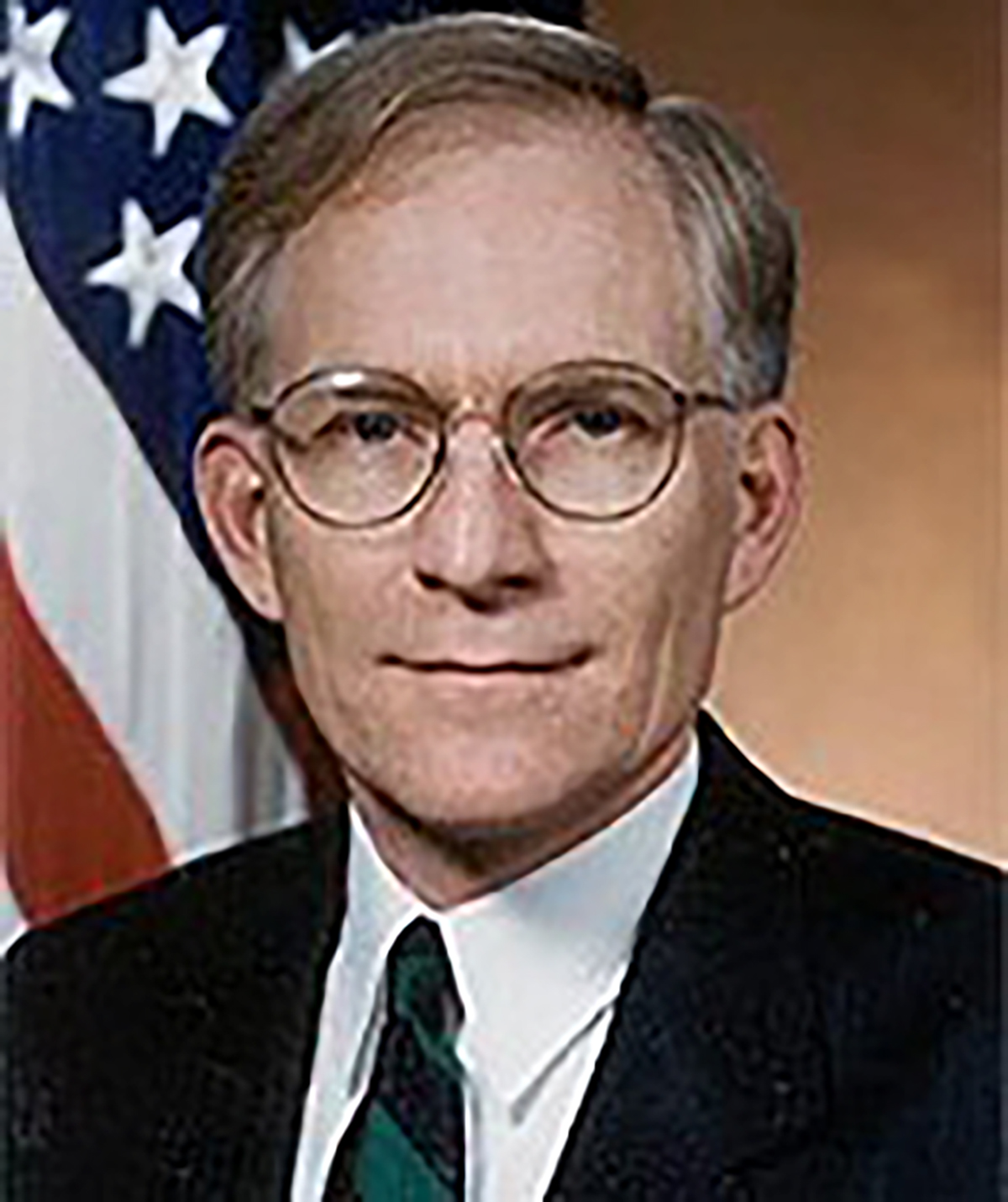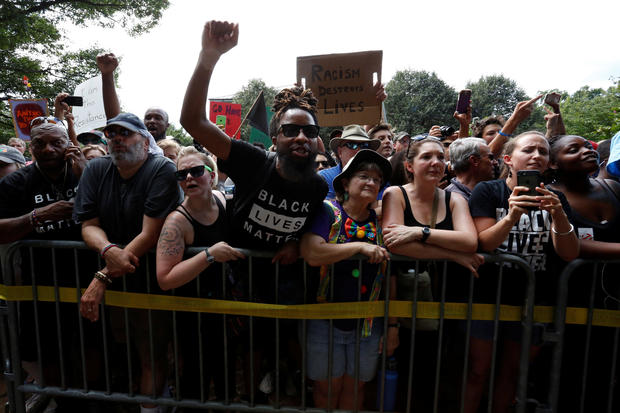|
|
|
|
|
|||||||||||||||
|
|
|
|
||||||||||||||
|
|
|
|
|
|||||||||||||||
|
|
|
|
||||||||||||||
In 2013, Charles Taylor, the former president of the West African nation Liberia, was convicted and sentenced to 50 years in prison for war crimes and crimes against humanity for subjecting the people of Sierra Leone to murder, mutilation, rape and sexual slavery. Estimates vary, but it is believed that more than 50,000 people were killed, several hundred thousand were maimed or wounded and 2.5 million were displaced in a nation of 6 million during 11 years of conflict.
Taylor is the only sitting head of state ever to be convicted on such charges, according to David M. Crane, the chief prosecutor in the case. He was appointed by Kofi Annan, then-secretary general of the United Nations, at the recommendation of the Security Council, to create and manage the independent Special Court for Sierra Leone. Besides Taylor, the leaders of three other factions in the war were also convicted of war crimes, including the widespread forced conscription of children as fighters.
Why was Crane chosen?
“That’s the $25 question,” he said. “(Former U.S. secretary of state) Colin Powell told me that I had a reputation for creating new organizations and driving them forward toward success.”

At 3:30 p.m. Tuesday in the Hall of Philosophy, Crane will discuss his work and address the theme “Journalism and International Justice” as part of the Oliver Archives Heritage Lecture Series. He will be joined by the television and newspaper journalist Brian Rooney, the winner of four Emmy and two Edward R. Murrow awards. A renowned expert in international criminal law and a professor of that subject at Syracuse University’s law school, Crane said he chose the topic because of “the role of the press in bringing atrocities to light. Without the press, politicians would just cover them up.”
While Taylor is the only head of state to be tried and convicted by an international tribunal, Crane — along many other human rights advocates and legal scholars — hopes he will not be the last. Crane created and has headed the Syrian Accountability Project at Syracuse University since the beginning of the civil war in Syria in 2011. The group has built a huge database and index matrix cataloguing war crimes and crimes against humanity perpetrated by Syria’s president, Bashar al-Assad and the leaders of 13 fighting factions. The group, which has verified 8,000 pages of individual war-crime incidents, has been praised by the U.S. Congress and the United Nations for its work, and could be called upon to assist in any potential tribunal.
“If they call me tomorrow, I could prosecute Assad,” said Crane, who served in the U.S. military and worked for 30 years on national security issues and policy for the Department of Defense and congressional intelligence committees.
There have been only four international war crimes tribunals in the modern era: The trials of Nazi war criminals in Nuremberg after World War II; the prosecution in The Hague of the leaders of various factions in the civil war in Yugoslavia, including the former Serbian president, Slobodan Milošević, who died awaiting trial; the tribunal in The Hague to bring to justice those responsible or complicit in the Rwandan genocide; and the Sierra Leone trials.
Why are such tribunals necessary?
“Because in the 20th century, 115 million people were destroyed by their own governments,” Crane said. “It is important to hold heads of state, dictators and thugs accountable.”
People don’t realize it, Crane said, but the Cold War, from 1945 to 1993, was “the bloodiest war in history,” in which 90 million people died.
“Political stasis neutralized the U.N. because the United States and the Soviet Union had veto power, so dictators were allowed to do whatever they wanted,” he said.
By the 1990s, the world community had come to the realization that continuing to stand and watch as regional wars raged across the globe was no longer tenable, and decided to act by resurrecting war crimes tribunals.
And if, as many believe, a tribunal is formed to seek justice for the victims of atrocities in Syria, Crane and his group will be ready.
“We have an office that will give the proper evidence to any prosecutor,” he said.
By: Sara Adams
Impunity Watch News Reporter, Europe

ANKARA, Turkey – The government in Turkey detained several human rights activists on July 6 on an island off the country’s coast.
Among those detained were Amnesty International’s Turkey director, Idil Eser. It was left unclear what the individuals are being detained for. But in June, Amnesty International’s Turkey chair, Taner Kilic, was arrested along with 22 lawyers for alleged membership in a “terrorist” group.
The crackdown on human rights supporters comes from last year’s failed coup against Turkish President Erdogan. The government believes that Muslim cleric Fethullah Gulen staged the coup.
Gulen exiled himself from Turkey in 1999, and has lived in Pennsylvania since. He has denied that he was involved in the coup. Gulen has been outspoken against the Turkish government previously.
Critics argue that President Erdogan is using last July’s failed coup and its subsequent State of Emergency as a means of suppressing dissent against his administration.
At least 50,000 people opposing Erdogan have been arrested under his authority. It has been reported that more than 100,000 people have been dismissed or suspended from their jobs.
Though it is not yet a member of the European Union, Turkey has been in the process of gaining EU membership for several years. Talks have been ongoing since 2005. In November 2016, the European Parliament voted to suspend discussions with Turkey regarding entry into the EU.
Debate has raged between European Parliament members regarding the best way to strengthen Turkey’s democratic processes. However, the EU has been weary of allowing Turkey into the Union due to the country’s stances on human rights and the death penalty.
The Turkish government’s crackdown expands beyond human rights activists and those who openly oppose President Erdogan. In June 2017, about 44 people were detained during an LGBT Pride march in Istanbul.
Turkish law enforcement used tear gas and plastic bullets against the people who attempted to gather for the parade.
The European High Commission for Human Rights (EHCR) condemned the actions. Commissioner Nils Muiznieks stating that “although a demonstration may annoy or cause offense to persons oppose to the ideas…This cannot serve as an admissible ground for prohibiting a peaceful gathering.” He also called the reports of police violence as “worrying”.
Meanwhile, Amnesty International has openly spoken against Erdogan for arrests of the group’s leaders. The group’s Secretary General, Salil Shetty, called the detainment “profoundly disturbing.”
“This is a grotesque abuse of power and highlights the precarious situation facing human rights activists in the country,” he added.
Despite critics, President Erdogan still remains more popular than not in Turkey. In April 2017’s referendum, 51.4% voted to expand the president’s executive power.
Amnesty International continues to call for the release of the detainees.
For more information, please see:
ABC News – Amnesty calls for release of rights activists held in Turkey – 6 July 2017
The New York Times – Turkey Detains a 2nd Amnesty International Leader – 6 July 2017
BBC News – Turkey police hold rights activists including Amnesty chief – 6 July 2017
The Telegraph – Turkey police detain Amnesty director and 12 other rights activists – 6 July 2017
CBS – Turkish police arrest dozens at Istanbul’s banned LGBT pride event – 26 June 2017
The Guardian – Turkey arrests Amnesty International head and lawyers in Gulenist sweep – 6 June 2017
BBC News – Turkey referendum: Vote expanding Erdogan powers ‘valid’ – 17 April 2017
The New York Times – Turkey and E.U. Near Breaking Point in Membership Talks – 23 November 2016
By Sarah Lafen
Impunity Watch Desk Reporter, North America
WASHINGTON D.C., United States — Over one thousand protesters met the Ku Klux Klan in downtown Charlottesville, Virginia as the white supremacist group prepared for a march through the town protesting the city’s decision to take down a statue of Confederate General Robert E. Lee from a public park. The anti-KKK protesters outnumbered the KKK members, and held signs that denounced racism and promoted racial tolerance.

Members of the Loyal White Knights chapter of the KKK, which is based in Pelham, North Carolina, wore robes, hoods, and carried the Confederate flags. One member carried a poster that read “Stop the cultural genocide of white people!” while others shouted “white power.” The organization claimed that the removal of the Lee statue is part of a wider effort to eliminate white history. One member, James Moore, believes that “[t]hey’re trying to erase the white culture right out of the history books.”
In response to the rally, city officials organized events in other parts of the city and encouraged city residents to stay clear of the KKK members. However, many residents still showed up at the rally to make sure their voices were heard. A professor at the University of Virginia who is among those calling for the removal of the Lee statue, Jalane Schmidt, commented that it was important for her to be at the rally “because the Klan was ignored in the 1920s and they metastasized.” Schmidt emphasized that the KKK needs to know “that their ideology is not acceptable.”
Over one hundred police officers were at the rally to help maintain order. After the rally concluded, officers led several people away in handcuffs and asked large groups to disperse. Officers also declared the counter-protesters to be an “unlawful assembly” and used gas canisters to coerce them out of the area.
For more information, please see:
CBS News — At Virginia KKK Rally, Counter-protesters show up in Droves — 8 July 2017
USA Today — KKK Rally in Charlottesville met with Throng of Protestors — 8 July 2017
The Washington Post — Ku Klux Klan Rally Begins Amid Tension in Charlottesville — 8 July 2017
Yahoo News — KKK Marchers in Virginia Town met by Throngs of Counter-protesters — 8 July 2017
|
||||||||||||||||
|
||||||||||||||||
|
||||||||||||||||
|